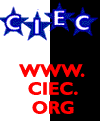

|
Supreme Court Appeal News Supreme Court Appeal Documents Background On The Net Free Speech Issue
|

Internet Users, Publishers, Online Service Providers, Non-Profit Groups, and Civil Liberties Advocates Fight The CDA in Court CDA is Unconstitutional, Fails to Recognize Unique Nature of the Internet A coalition representing a broad spectrum of Internet users, librarians, publishers, content providers and access providers filed a lawsuit on Monday, February 26, 1996 in a Federal Court in Philadelphia, PA seeking to overturn the Communications Decency Act. The challenge argued that the Internet is a unique communications technology which deserves First Amendment protections at least as broad as those enjoyed as by the print medium. The group, known as the Citizens Internet Empowerment Coalition (CIEC - pronounced "seek") is coordinated by the Center for Democracy and Technology, America Online, and the American Library Association, and others, including People for the American Way. Its 35 members include libraries, book publishers, newspaper publishers, editors, advertisers, commercial online service providers, ISP's, non-profit groups, and civil liberties advocates.
The Complaint In a 73-page complaint that detailed the history of the Internet and outlines how the network operates, the CIEC intended to educate the court on how the Internet functions and why the broad content regulations imposed by the CDA threaten the very existence of the Internet as a viable medium for free expression, education, and commerce. Among other things, the CIEC challenge argued that:
In order to demonstrate the nature of the Internet and the effectiveness of user empowerment technologies, CIEC arranged to wire the court room directly to the Internet. The Center for Democracy and Technology, with the help of Bell Atlantic and Philadelphia law firm Schnader, Harrison, Segal & Lewis (an amicus counsel in the case), installed a T-1 circuit and a small local area network in the Ceremonial Room of the Philadelphia court. To the best of our knowledge, this was the first time in history that a Federal Courtroom has been wired to the Net for the purposes of a Trial. The outcome of the legal challenges to the CDA will likely determine the legal status of speech on the Internet and the future of the First Amendment in the Information Age.
|